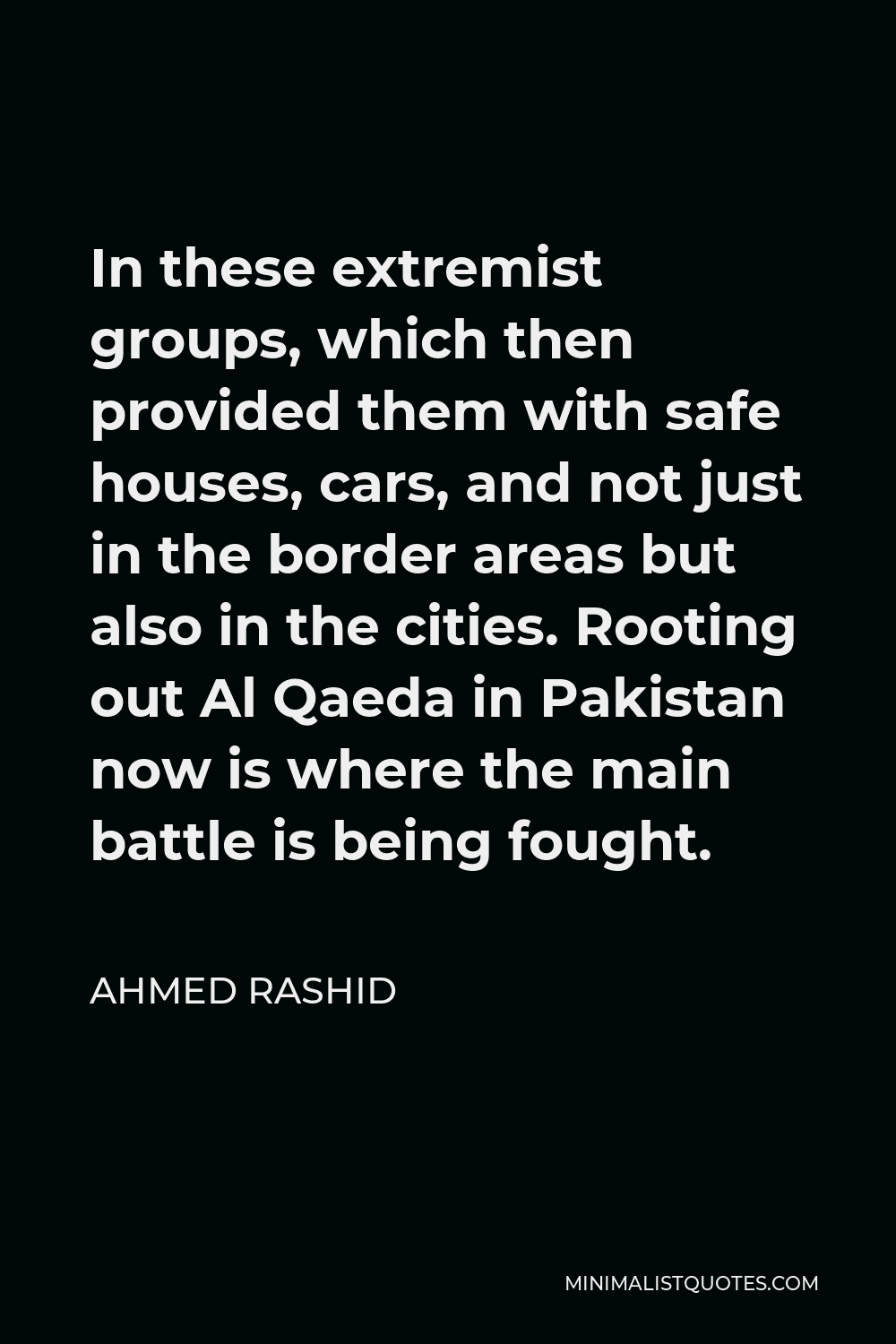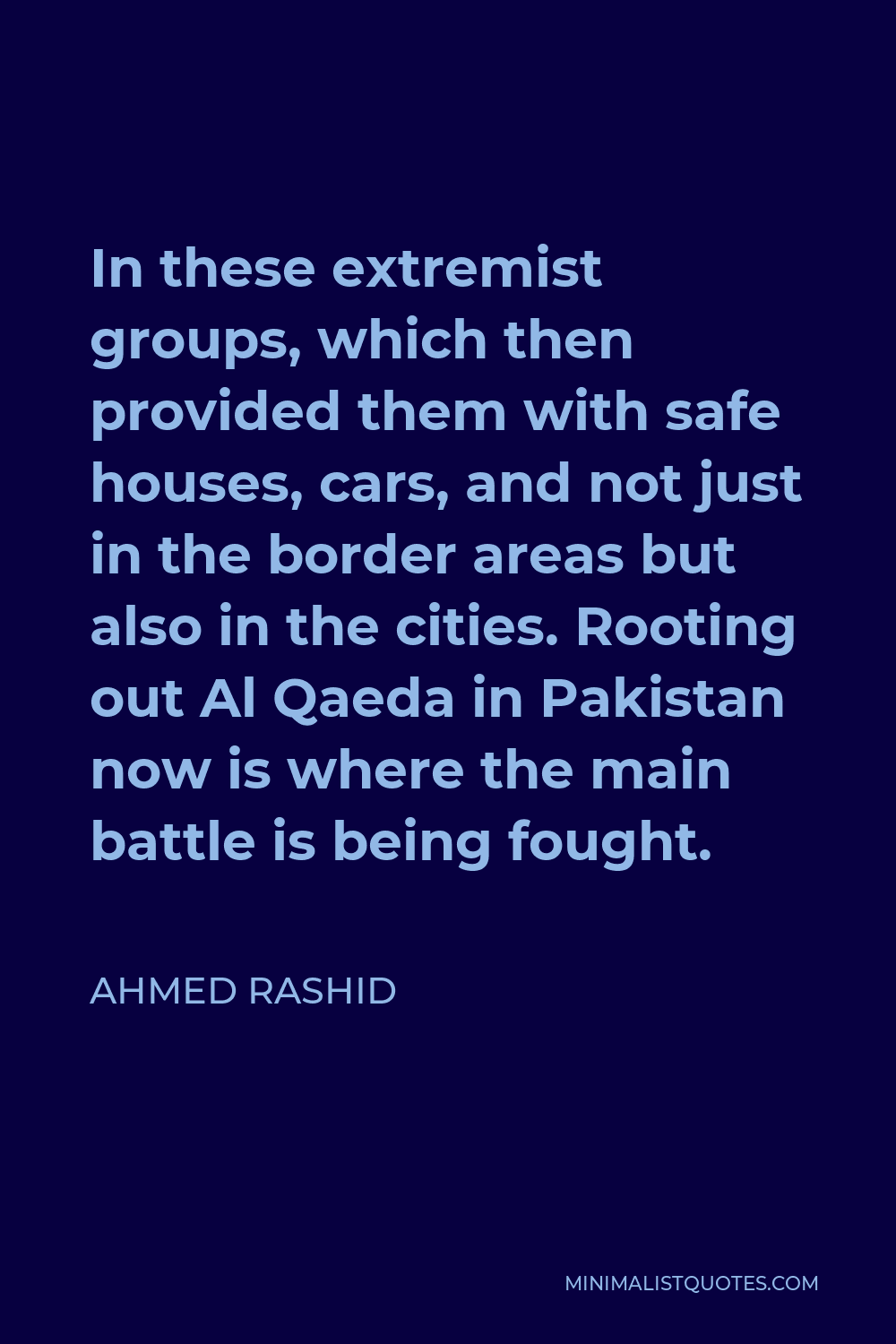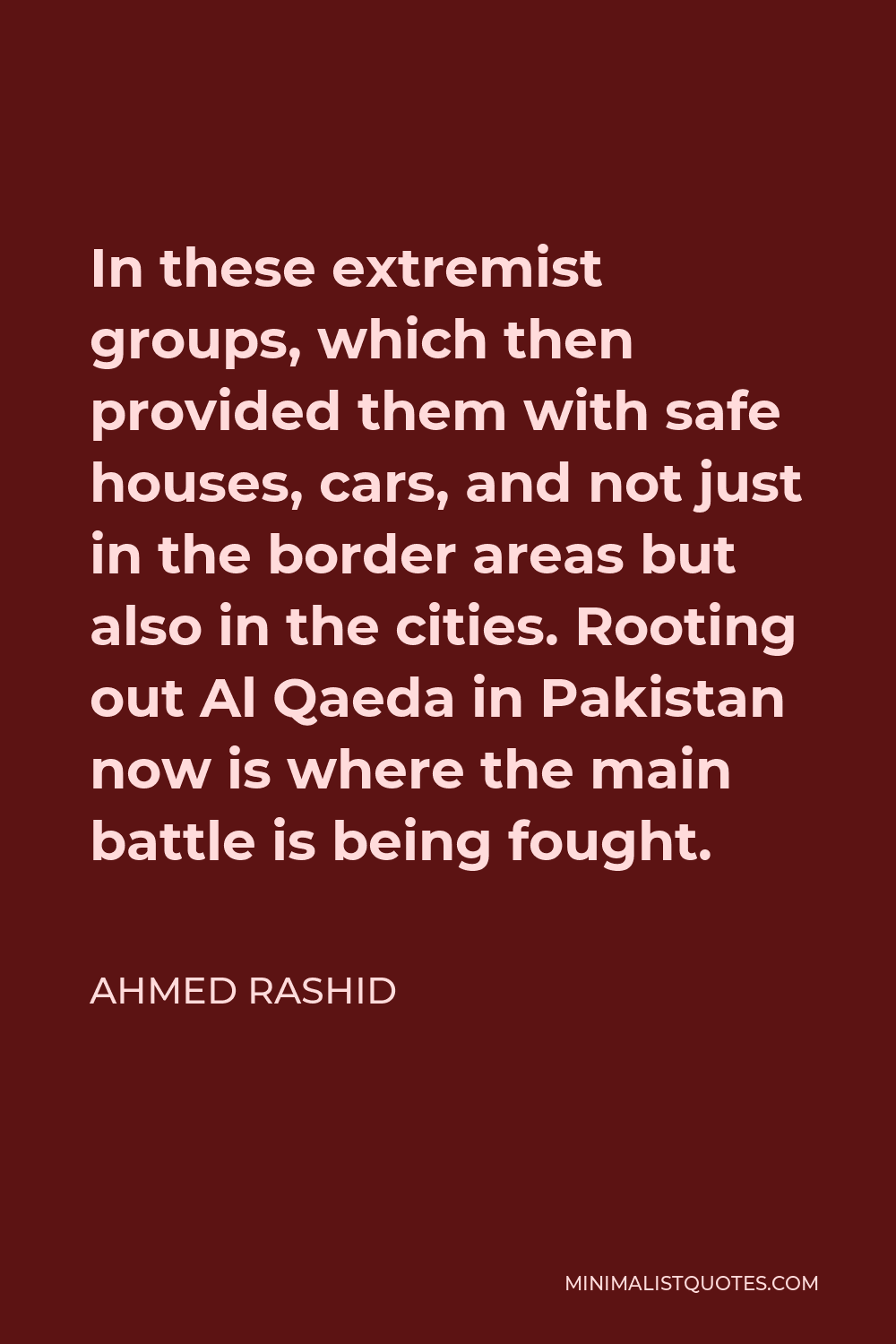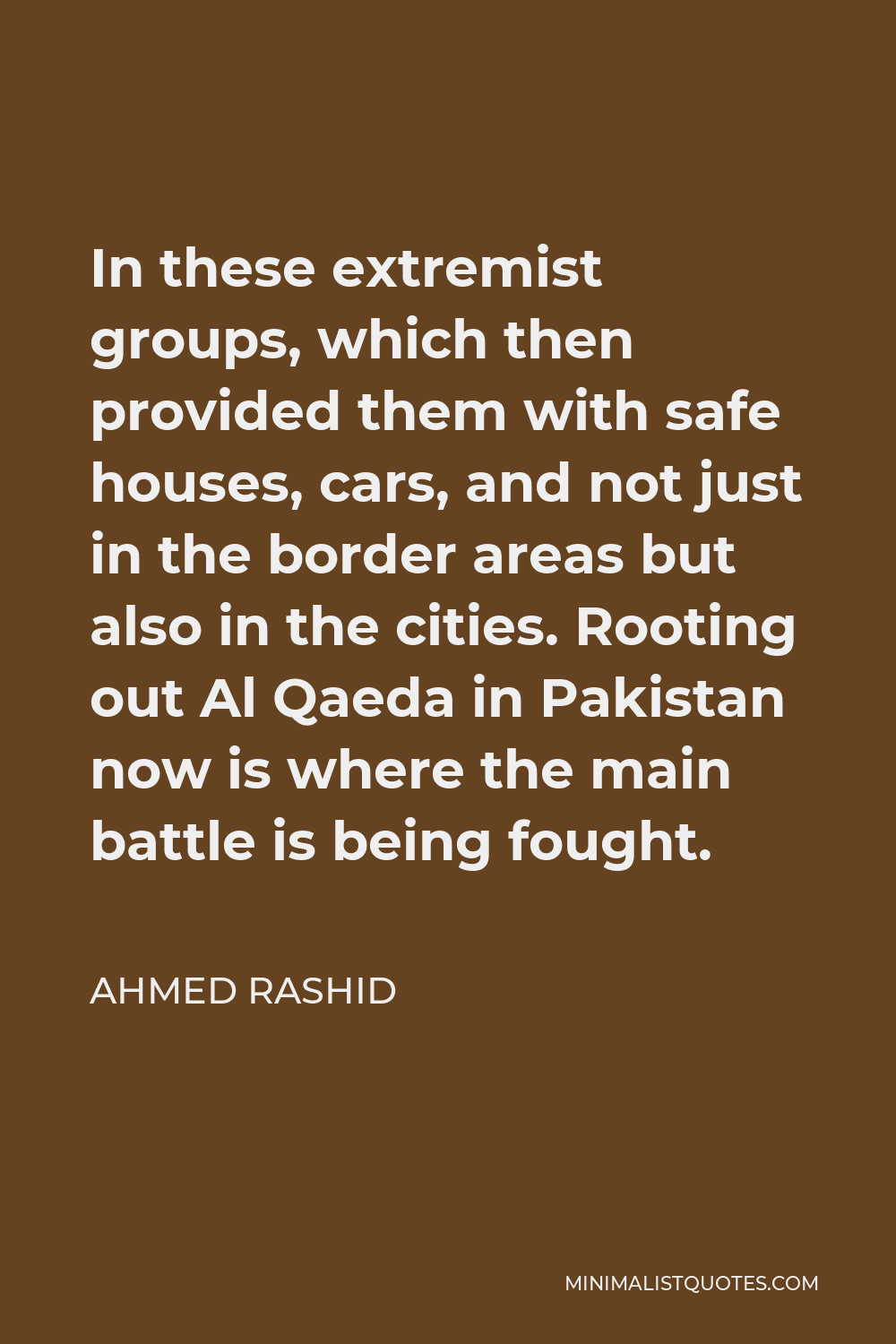The Taliban had become deeply unpopular and were actually discarded by the Pashtun population almost as quickly as they were in the north. I don’t see the Taliban coming back in any way.
AHMED RASHIDIn these extremist groups, which then provided them with safe houses, cars, and not just in the border areas but also in the cities. Rooting out Al Qaeda in Pakistan now is where the main battle is being fought.
More Ahmed Rashid Quotes
-





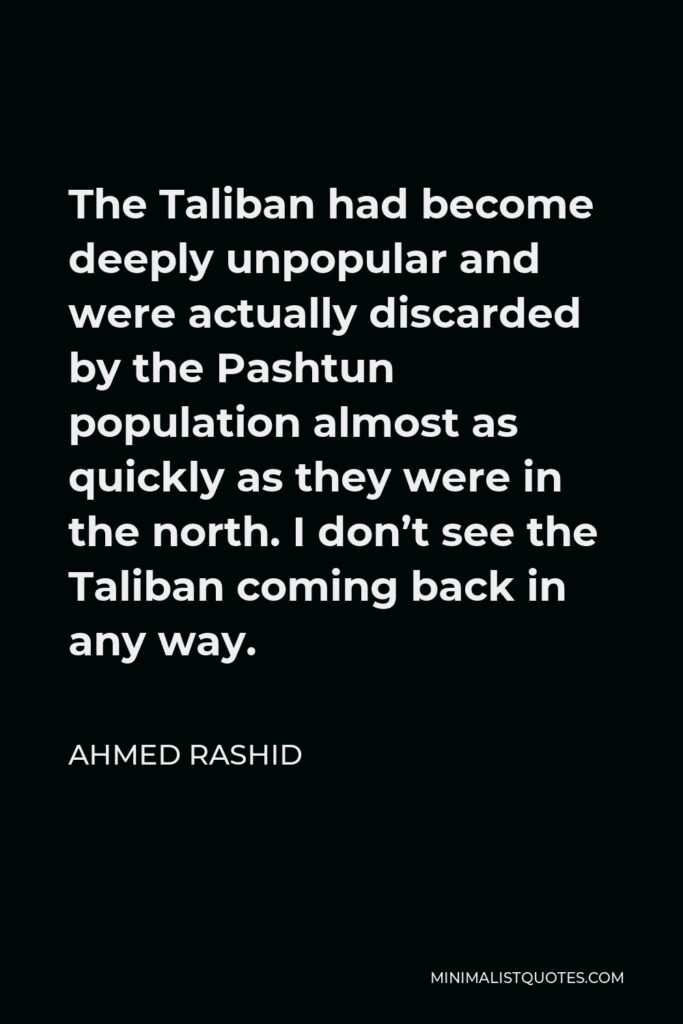

-





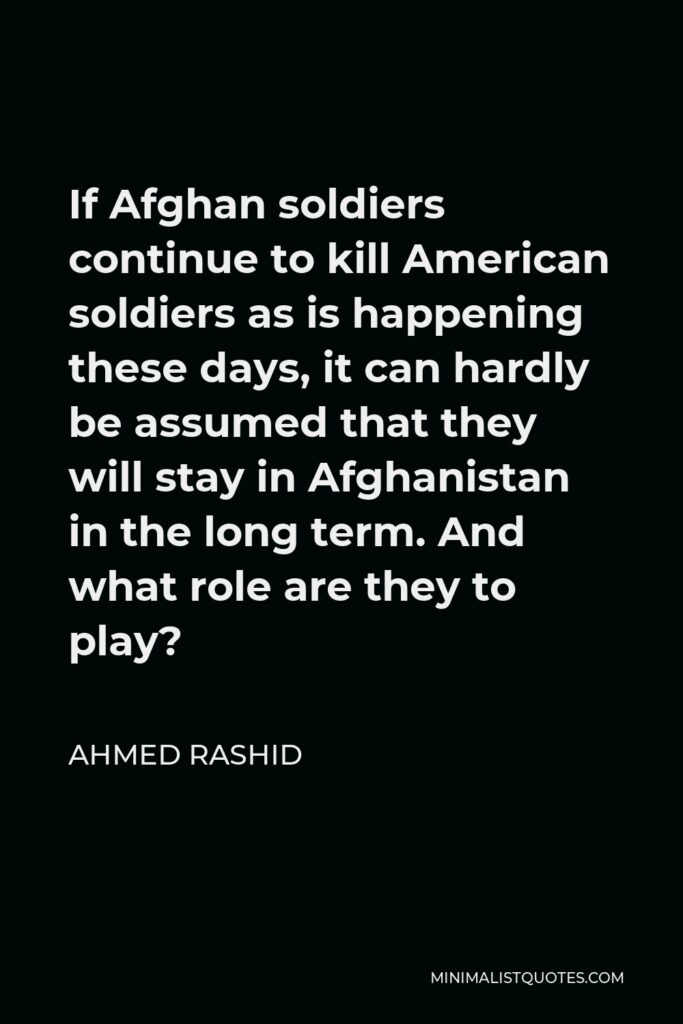

If Afghan soldiers continue to kill American soldiers as is happening these days, it can hardly be assumed that they will stay in Afghanistan in the long term. And what role are they to play?
AHMED RASHID -





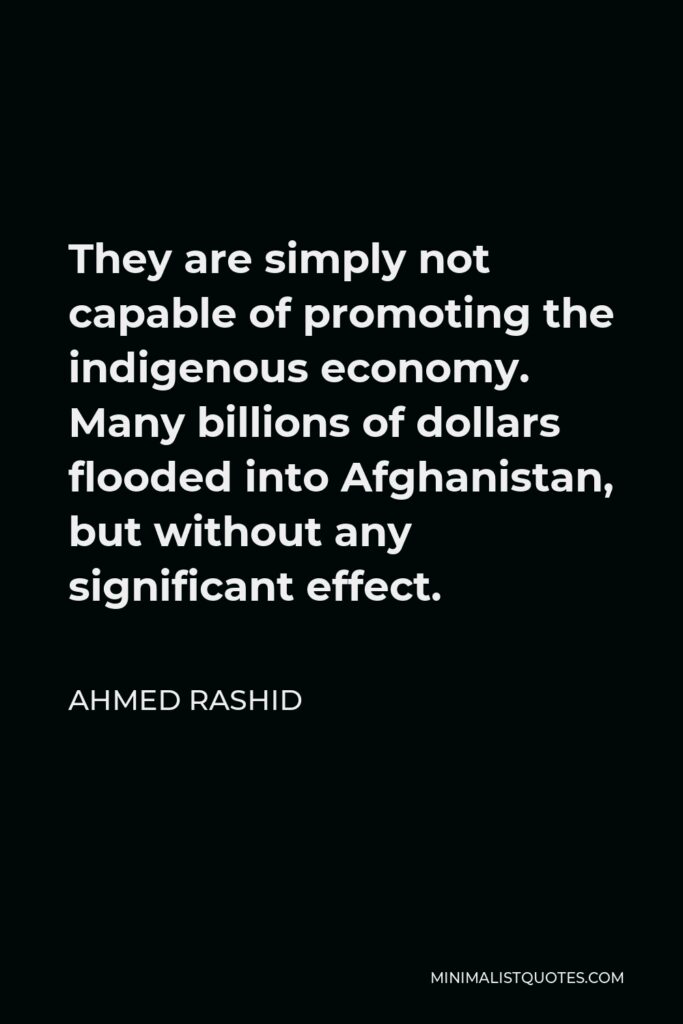

They are simply not capable of promoting the indigenous economy. Many billions of dollars flooded into Afghanistan, but without any significant effect.
AHMED RASHID -





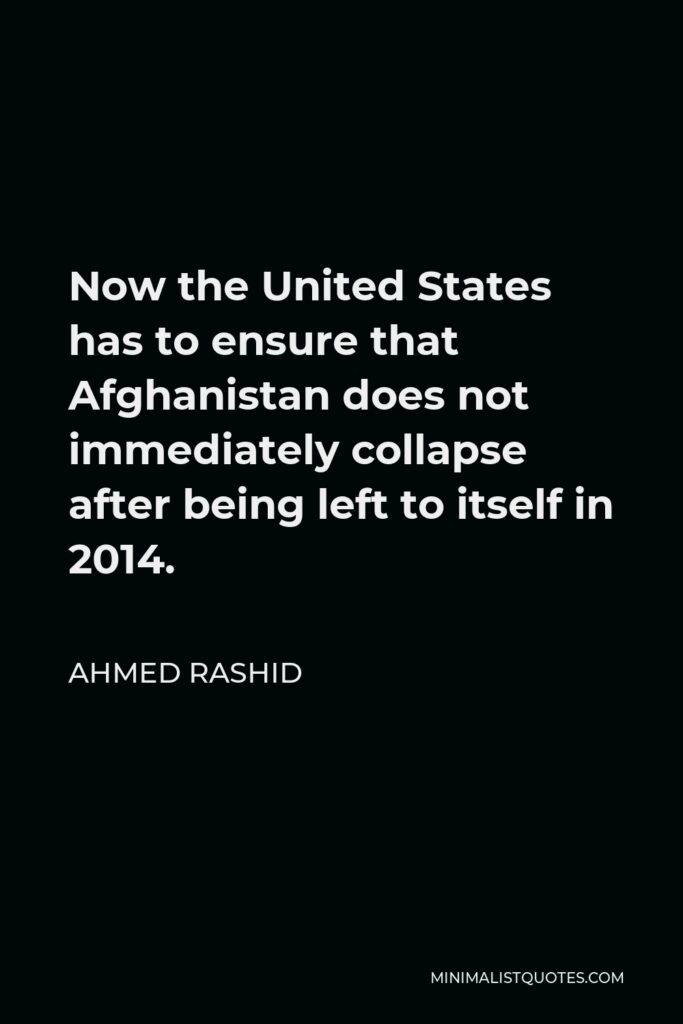

Now the United States has to ensure that Afghanistan does not immediately collapse after being left to itself in 2014.
AHMED RASHID -





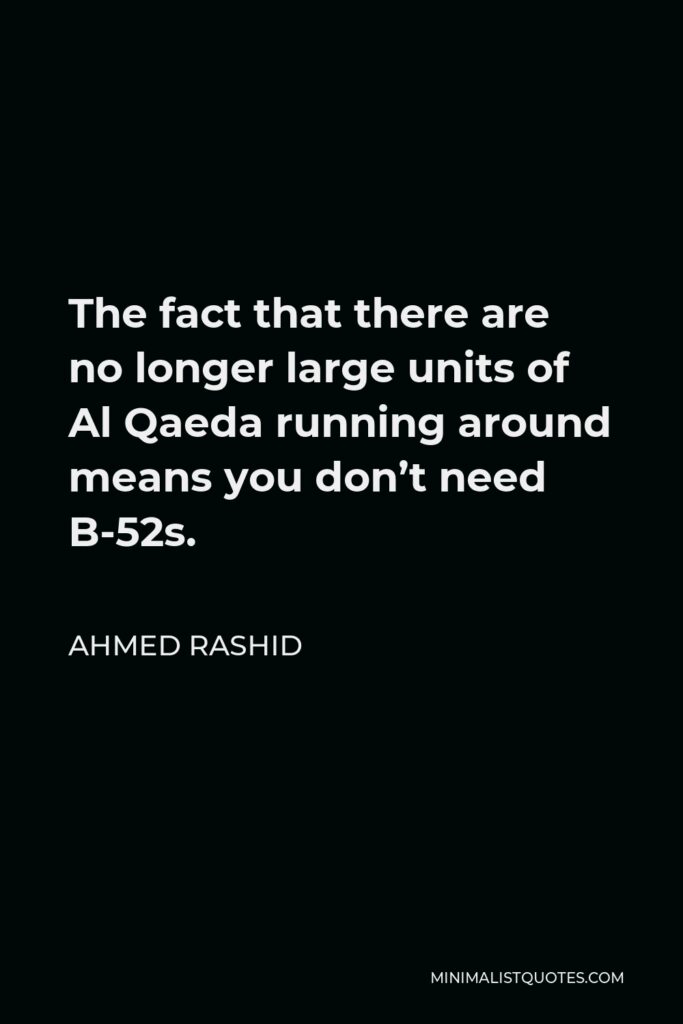

The fact that there are no longer large units of Al Qaeda running around means you don’t need B-52s.
AHMED RASHID -





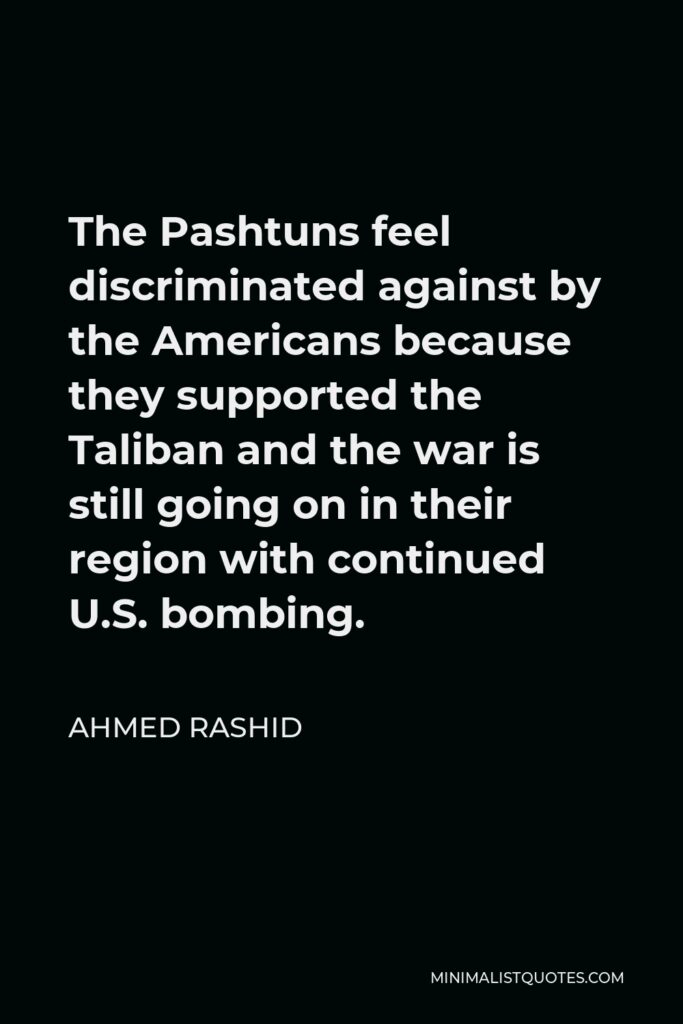

The Pashtuns feel discriminated against by the Americans because they supported the Taliban and the war is still going on in their region with continued U.S. bombing.
AHMED RASHID -





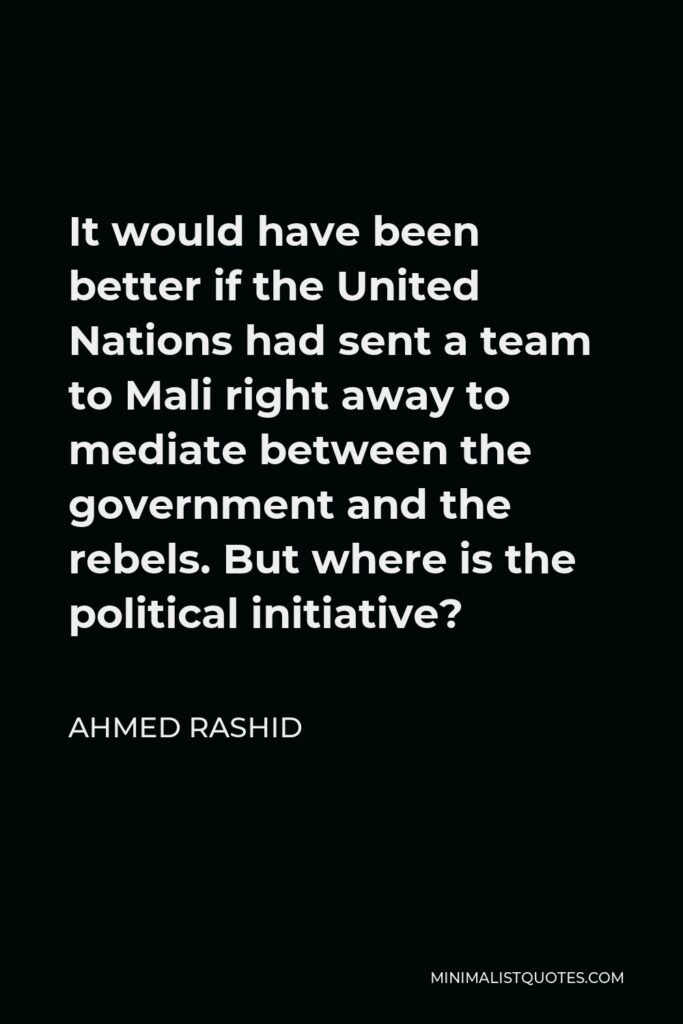

It would have been better if the United Nations had sent a team to Mali right away to mediate between the government and the rebels. But where is the political initiative?
AHMED RASHID -





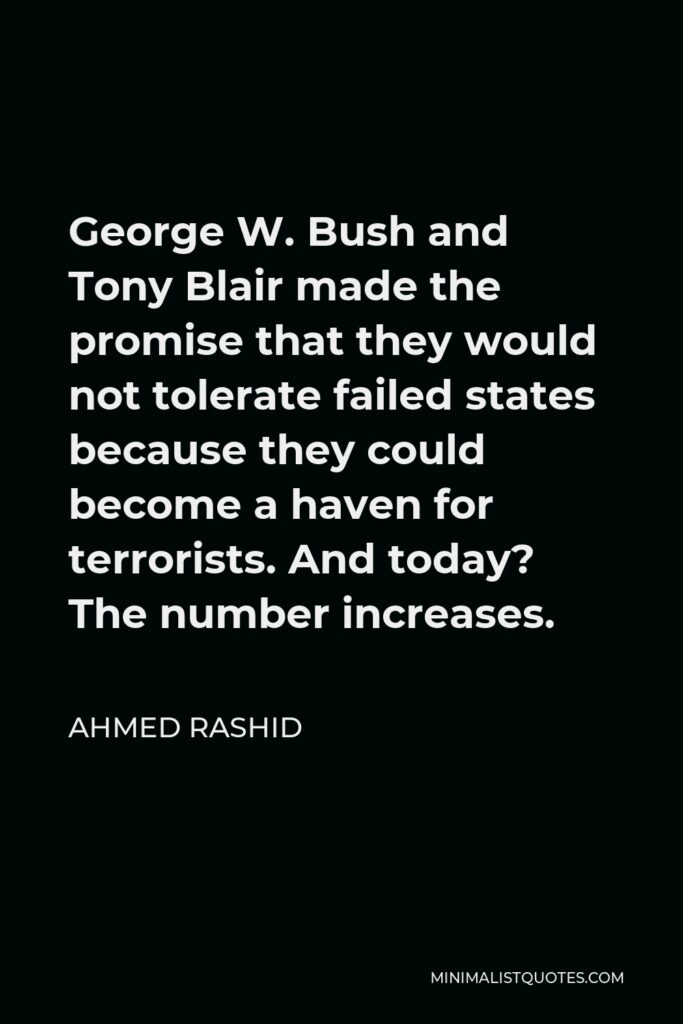

George W. Bush and Tony Blair made the promise that they would not tolerate failed states because they could become a haven for terrorists. And today? The number increases.
AHMED RASHID -





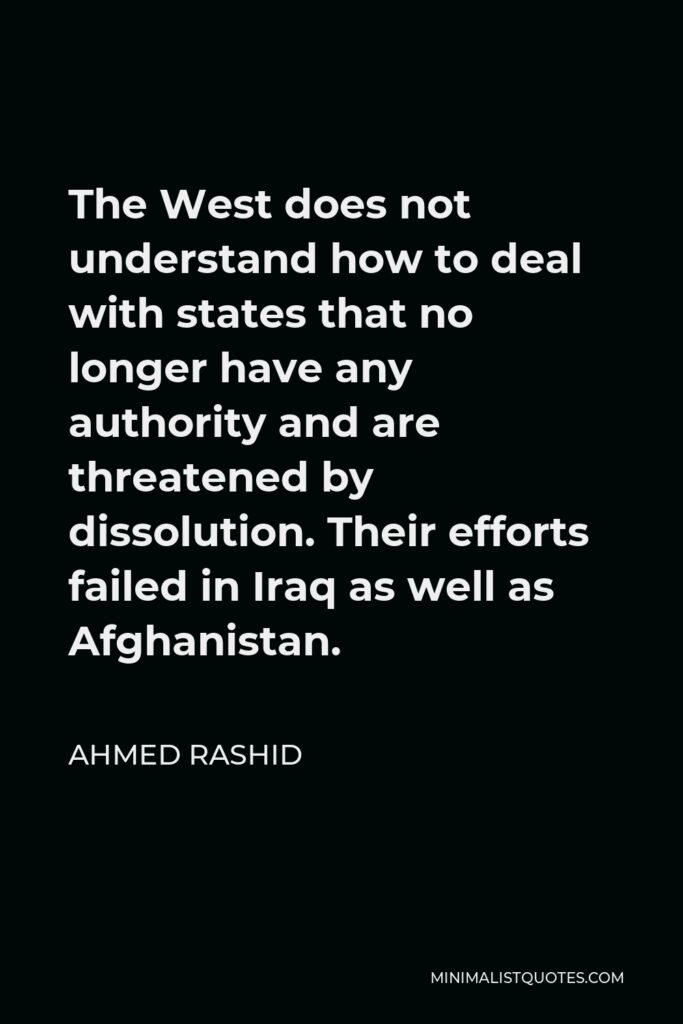

The West does not understand how to deal with states that no longer have any authority and are threatened by dissolution. Their efforts failed in Iraq as well as Afghanistan.
AHMED RASHID -





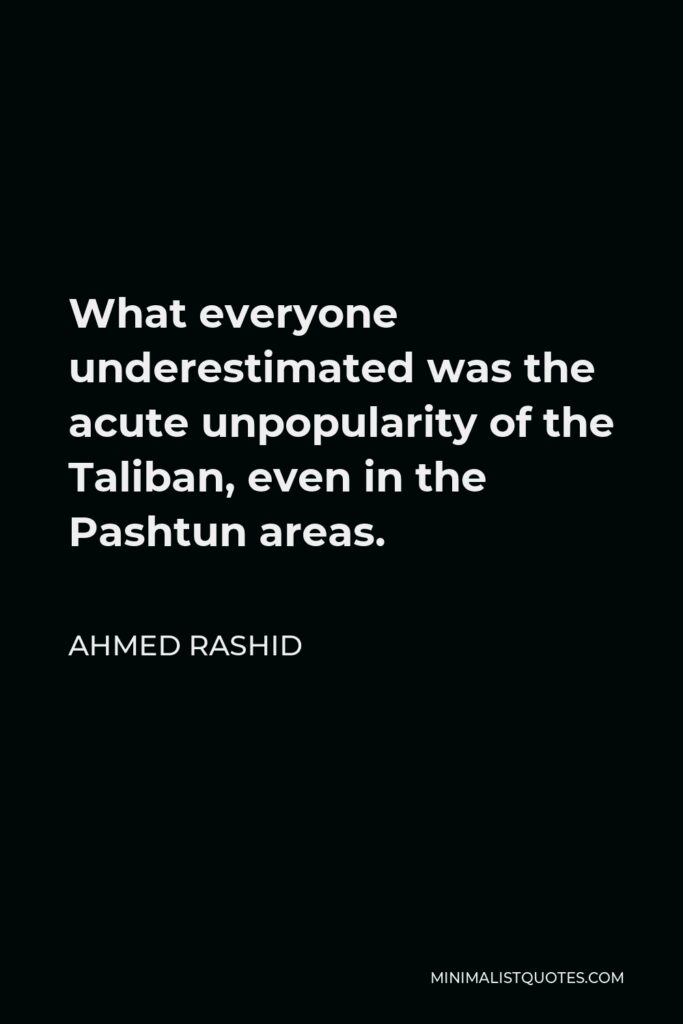

What everyone underestimated was the acute unpopularity of the Taliban, even in the Pashtun areas.
AHMED RASHID -





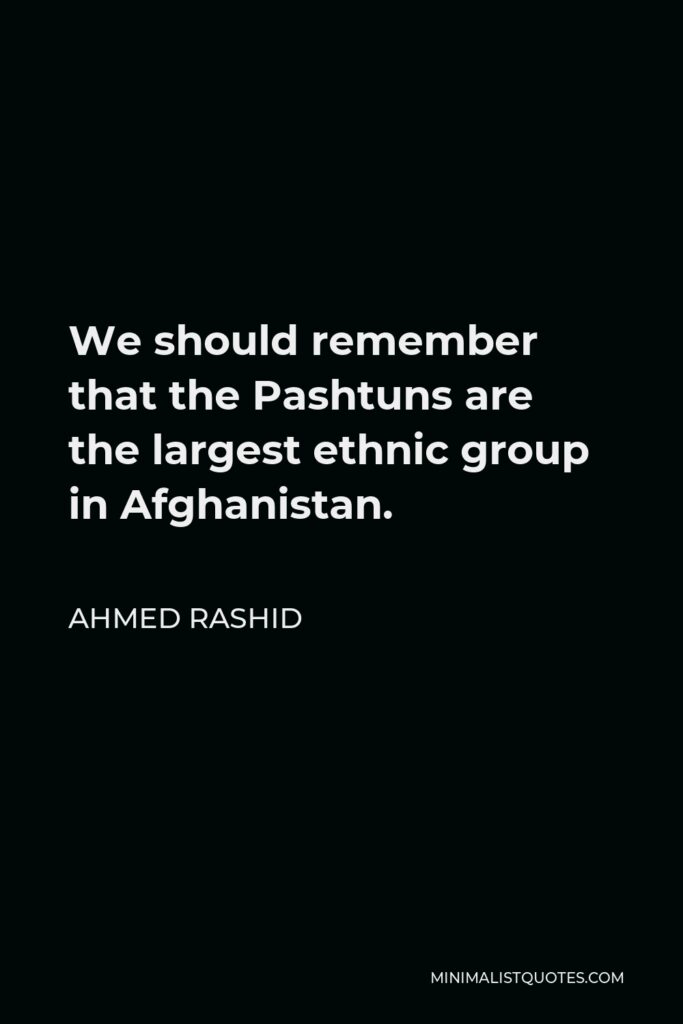

We should remember that the Pashtuns are the largest ethnic group in Afghanistan.
AHMED RASHID -





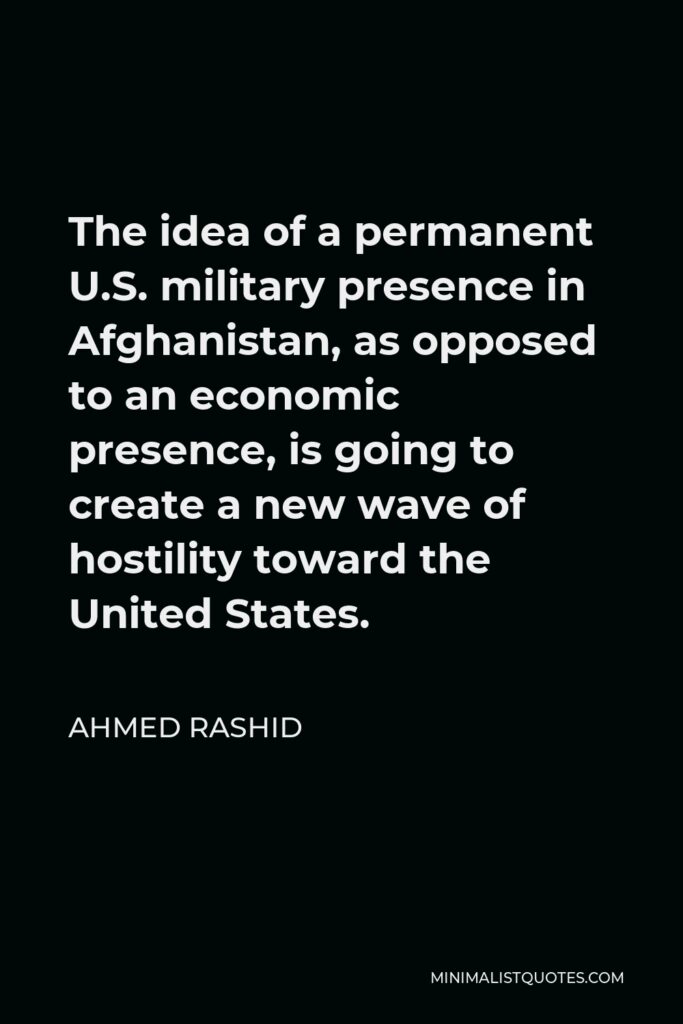

The idea of a permanent U.S. military presence in Afghanistan, as opposed to an economic presence, is going to create a new wave of hostility toward the United States.
AHMED RASHID -





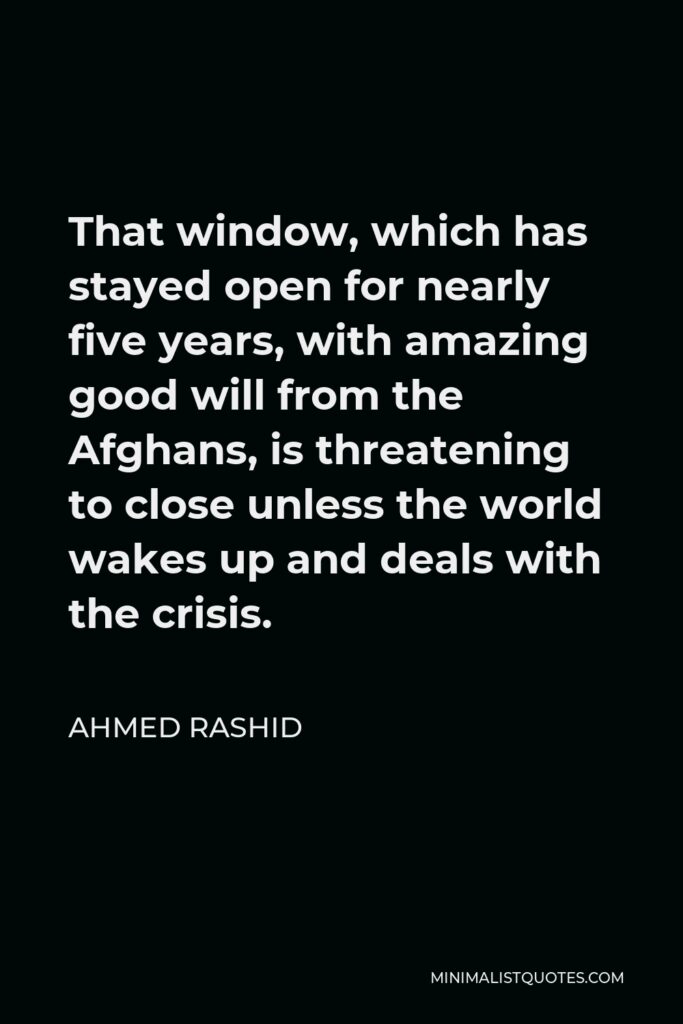

That window, which has stayed open for nearly five years, with amazing good will from the Afghans, is threatening to close unless the world wakes up and deals with the crisis.
AHMED RASHID -





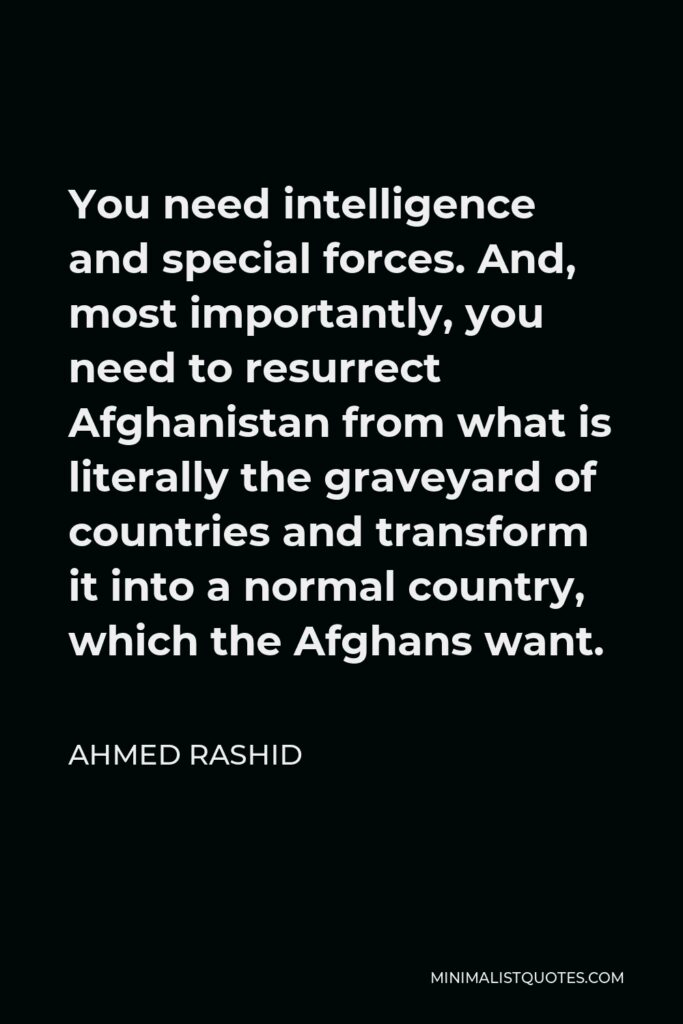

You need intelligence and special forces. And, most importantly, you need to resurrect Afghanistan from what is literally the graveyard of countries and transform it into a normal country, which the Afghans want.
AHMED RASHID -





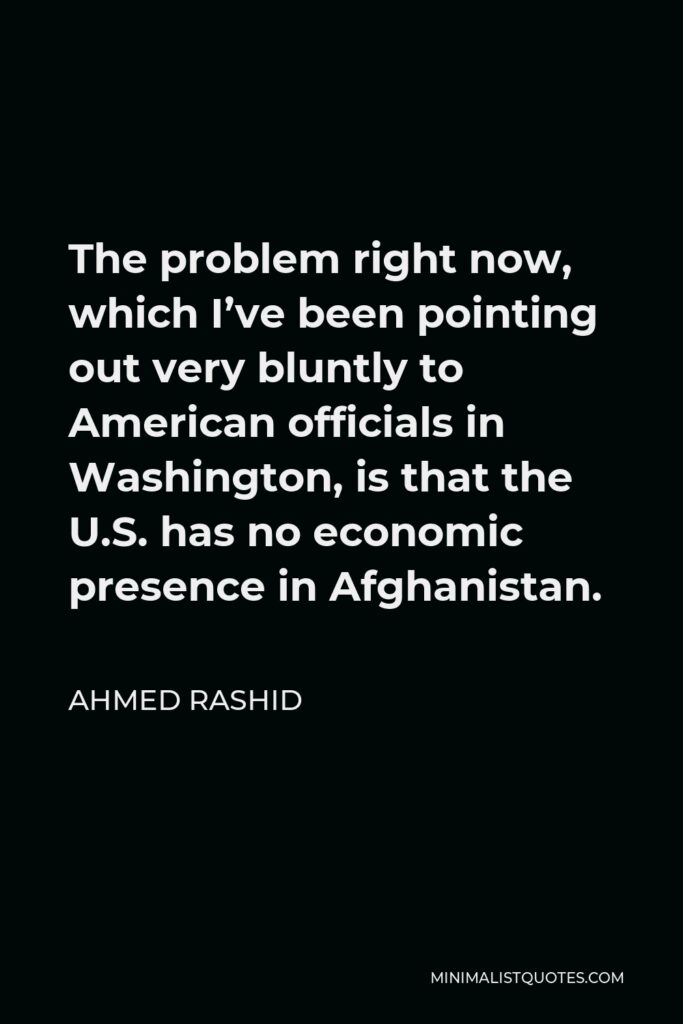

The problem right now, which I’ve been pointing out very bluntly to American officials in Washington, is that the U.S. has no economic presence in Afghanistan.
AHMED RASHID -





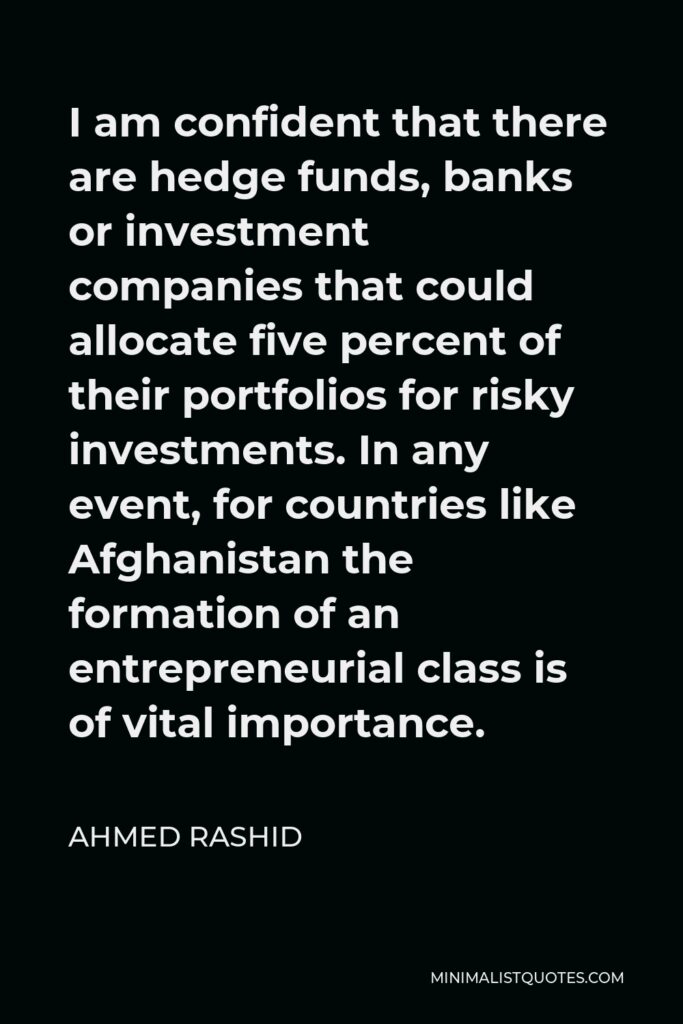

I am confident that there are hedge funds, banks or investment companies that could allocate five percent of their portfolios for risky investments. In any event, for countries like Afghanistan the formation of an entrepreneurial class is of vital importance.
AHMED RASHID
